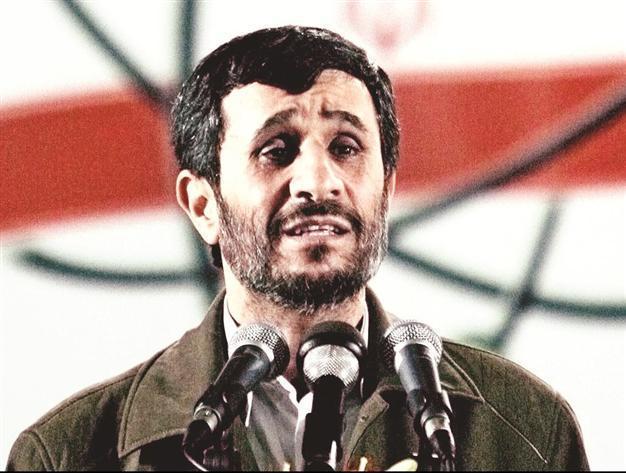Iran leader eyes cutting subsidies to support economy
DUBAI - Reuters

The Western sanctions create a series
of problems, including a slowdown
in growth, Ahmadinejad says. AP photo
Iranian President Mahmoud Ahmadinejad appeared in parliament yesterday, urging lawmakers to allow government plans to cut subsidies to go ahead as a way to revive the economy, struggling in the grip of tightening Western sanctions.
Parliament suspended the second phase of the government’s subsidy reform plan in November, saying that reductions in subsidies, which began in 2010, had contributed to higher inflation. Further cuts would harm an economy already battered by Western sanctions on the banking and energy sectors, they said.
But Ahmadinejad defended yesterday the reforms, also called the targeted-subsidies plan, saying they had reduced income inequality between the rich and poor and were key to combating the effect of sanctions.
Food and fuelThe reforms are aimed at easing pressure on state finances by cutting tens of billions of dollars from government subsidies on food and fuel, while offsetting the impact on Iran’s citizens by giving them monthly cash payments.
“Our foes claim they have imposed the heaviest sanctions against us, including restrictions on oil sales and sanctions on the central bank and monetary transactions,” Ahmadinejad told parliament, according to the Iranian Students’ News Agency (ISNA).
“Naturally the sanctions create a series of problems, including a slowdown in the country’s growth, pressure on wide swathes of people who have a fixed income, disruption in foreign trade, and certainly a gap between classes.”
Iran’s economy is suffering badly, partly as a result of U.S. and European Union sanctions, which are designed to starve Tehran of funds that might be channelled into expensive nuclear weapons programmes. Iran denies it is seeking nuclear weapons, saying its atomic programme is solely for peaceful purposes.
Its currency the rial has crashed in value in the last year, contributing to higher inflation, which official estimates put at around 25 percent. Oil revenues, the country’s economic lifeblood, have been reduced by half in the last year.
“One of the best development measures to ensure sustainable growth and circumvent the sanctions and neutralize the enemy’s pressures has been the targeted subsidies plan,” Ahmadinejad said.
“If this plan is fully implemented, wealth will be fairly distributed, national capital will be preserved, production efficiency will go up, the government’s dependency on oil income will be reduced and poverty will be eradicated.”
